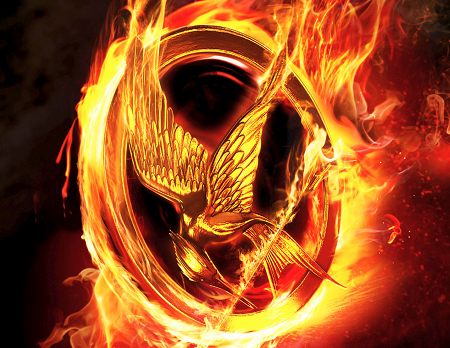The Definitive Christian Review of The Hunger Games


Okay, well actually it isn’t. I’m just rather surprised at some of the negative reviews this book (and movie) has earned from some Christians. Some of the reviews take aim at the supposedly a-moral, relativistic worldview of the author. Well, in brief point form and in no particular order, here’s my take on the book.
1) It’s not a Christian book and does not pretend to be. Don’t expect it to be.
2) The author has a gift for telling a story. I found the book difficult to put down. I read it in a day.
3) The book makes no mention of God at all. God’s name is not even used in vain once (unlike in the movie — 2 or 3 times). Like in The Cellist of Sarajevo, we have a world here without God — a world that can only be imagined (thanks to John Lennon for that insight!).
4) Nevertheless, the protagonist makes some decisions and takes some actions which are compatible with Christian ethics. For example, Katniss offers herself as a substitute for her weaker, younger sister Prim. She defends the weak and powerless in the Hunger Games. Yet other decisions and actions seem more consistent with the atheist world in which she lives. For example, her burning hatred for her enemies, mercy killing, and the whole fake romance thing.
5) The story raises many important discussion points for parents to engage their children. My twelve year old daughter read the book after me and we had an excellent discussion about it. I don’t think this is a book that should be independently read by Christian young people, but thoughtful parents and teachers could use it as a starting point for some good teaching opportunities.
6) Was the violence gratuitous and overly graphic? That depends what you’re measuring it against. Compared to the Berenstain Bears or the Hardy Boys, yes, it was way over the top. Compared to Ehud’s exploits in Judges, not so much.
7) It seems to me that comparisons with Nazi soldiers fall short because Katniss chooses to participate in the Hunger Games to save her sister. She also hates the system and seeks to defeat it. The means are not that praiseworthy perhaps, but what do you expect from a sixteen year old in an imaginary atheist world? This is a point worthy of discussion with our young people: from a Christian vantage point, what would you do in this scenario? Defend the weak and helpless to the greatest extent you can in the Games or have yourself martyred at the outset for refusing to participate in the Games? Tough call.
To conclude, no, this is not a Christian book and, on the whole, it doesn’t portray a Christian worldview. But does that automatically mean that we can’t read it or discuss it? I fail to see the logic in that — unless (and this is a big UNLESS) parents are disengaged or disinterested from reading anything that might appeal to their children.


